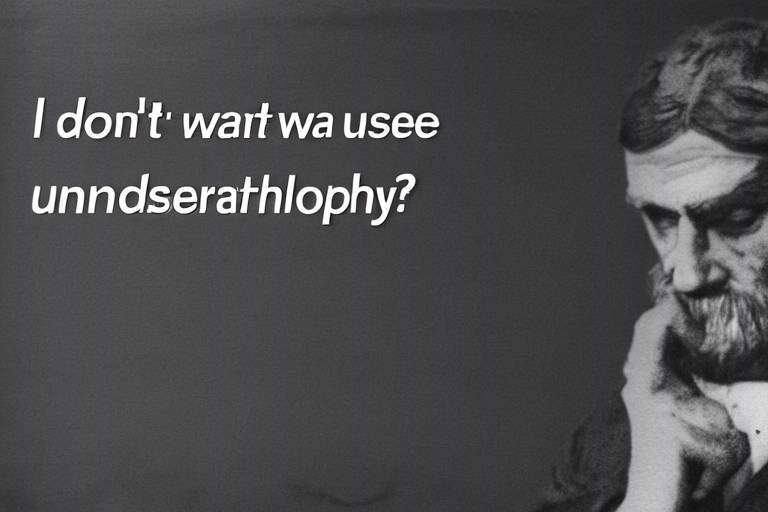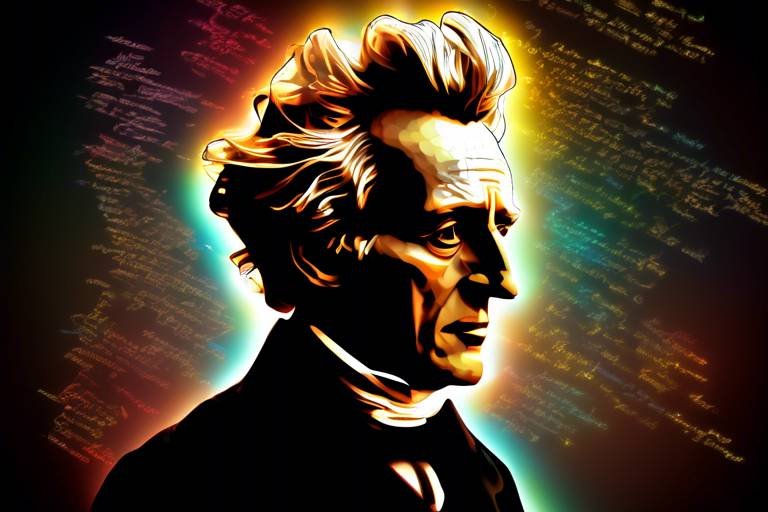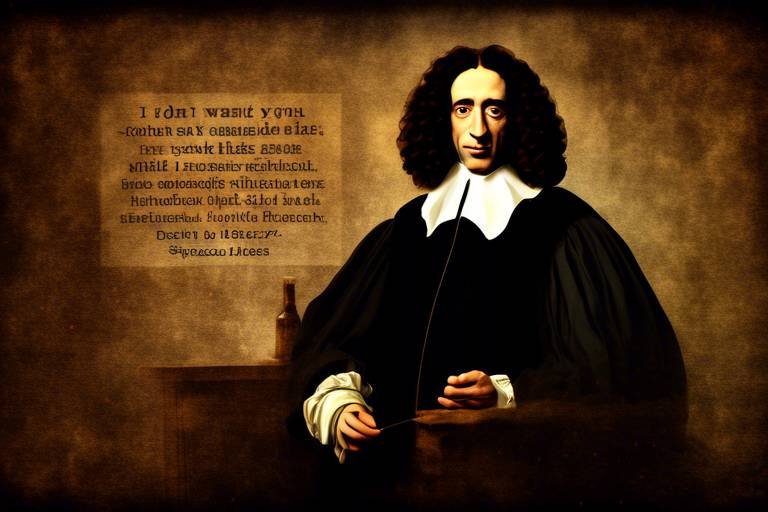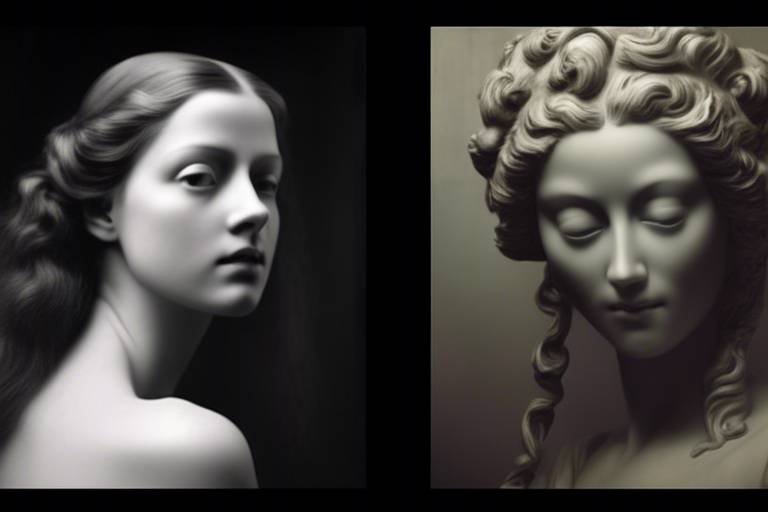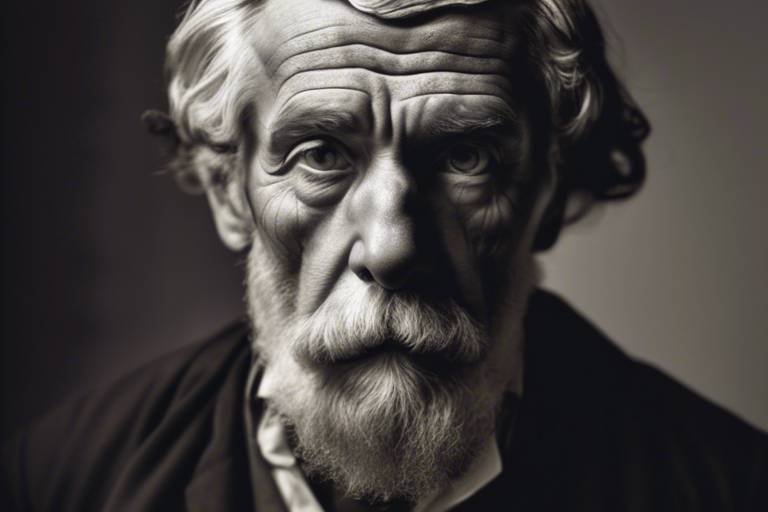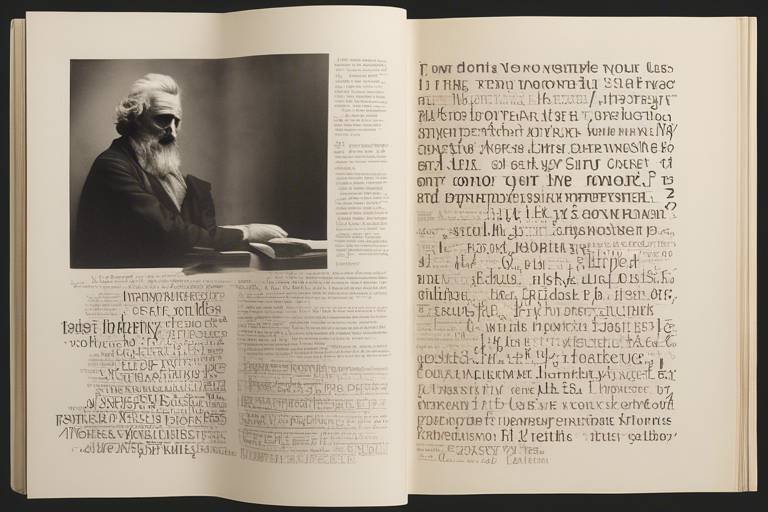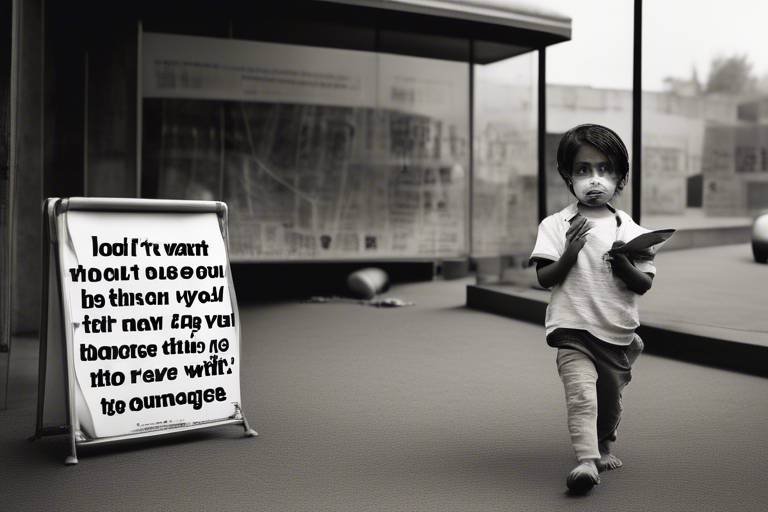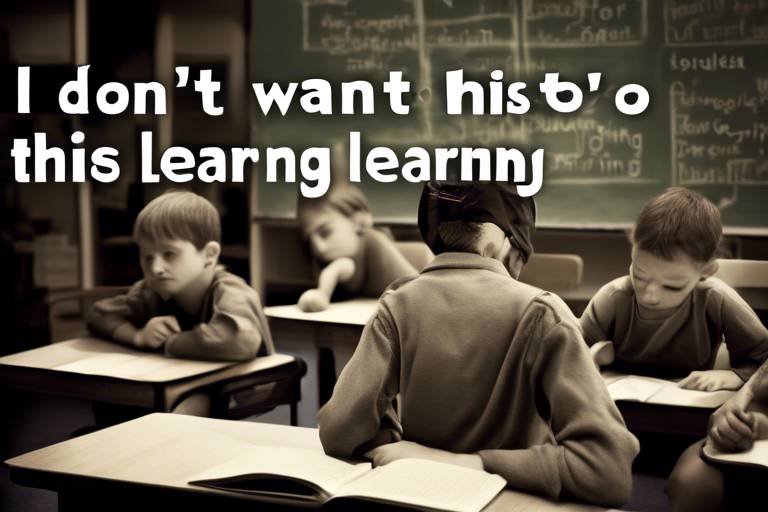Is There a Philosophical Explanation of Deja Vu?
Déjà vu is one of those curious experiences that can leave you scratching your head, isn't it? You know the feeling—suddenly, you find yourself in a situation that seems hauntingly familiar, as if you’ve lived it before. This phenomenon has intrigued not just the curious minds of scientists but also the profound thinkers of philosophy. So, what’s the philosophical angle on déjà vu? Can it shed light on our understanding of consciousness, memory, and even reality itself? In this exploration, we’ll dive into the philosophical interpretations of déjà vu, unraveling its implications and the various theories that attempt to explain this captivating experience.
To grasp the essence of déjà vu, we first need to understand how it feels. Imagine walking into a café you’ve never visited, yet every corner, every smell, and every sound feels oddly familiar. That’s déjà vu for you! This sensation captivates both scientists and philosophers alike, leading to a rich tapestry of inquiry into its psychological mechanisms. Some researchers suggest that déjà vu occurs when our brain processes a situation that feels familiar, even if we can’t pinpoint why. It’s like a glitch in the matrix of our memory, where the brain mistakenly recognizes a new experience as one from the past. This fascinating interplay between memory and perception raises profound questions about our consciousness and how we navigate our reality.
When we delve into the philosophical frameworks surrounding déjà vu, we encounter diverse interpretations that challenge our understanding of time and experience. Existentialism, for instance, offers a unique lens through which to view these moments of familiarity. Existentialists argue that déjà vu can serve as a mirror reflecting our search for meaning in a seemingly chaotic world. It prompts us to ask deeper questions about our existence and the nature of reality itself. What if these fleeting moments are not just coincidences but rather invitations to explore our inner selves?
From an existential standpoint, déjà vu is more than just a quirky mental phenomenon; it’s a profound reminder of our quest for meaning. These moments can provoke existential reflection, leading us to ponder the significance of our experiences. Are we merely going through the motions of life, or is there a deeper purpose behind our actions? When déjà vu strikes, it can feel like a nudge from the universe, urging us to seek clarity in our lives and understand our place in the grand tapestry of existence.
The relationship between time and consciousness is another critical aspect of understanding déjà vu. Our perception of time is often linear, flowing from past to present to future. However, déjà vu challenges this notion. It raises questions about the nature of our experiences—are they truly sequential, or can they overlap in ways we don’t fully comprehend? Philosophers have long debated the fluidity of time, and déjà vu adds another layer to this discussion, suggesting that our consciousness might experience time differently than we think.
Moreover, déjà vu intersects intriguingly with concepts of identity and memory. How do our memories shape our sense of self? When we encounter a déjà vu moment, it can feel like a collision between our past and present selves, prompting us to question how our experiences define who we are. Are we simply the sum of our memories, or is there more to our identity than the moments we recall? This philosophical inquiry into memory not only enriches our understanding of déjà vu but also deepens our exploration of what it means to be human.
Phenomenology, a philosophical approach focusing on subjective experiences, offers valuable insights into déjà vu. It emphasizes how individuals perceive and interpret these fleeting moments of familiarity. Each person’s experience of déjà vu is unique, shaped by their memories, emotions, and context. This subjective nature of déjà vu highlights the richness of human experience and invites us to consider how our perceptions influence our understanding of reality.
While philosophical interpretations of déjà vu are thought-provoking, scientific research also plays a crucial role in unraveling this phenomenon. By examining neurological and cognitive factors, scientists aim to provide a more comprehensive understanding of why déjà vu occurs. Neurological theories suggest that déjà vu may arise from misfiring neurons or heightened activity in the temporal lobe, offering a biological basis for this intriguing experience. On the other hand, cognitive psychology explores how memory and recognition processes contribute to déjà vu, shedding light on how our brains process familiar and unfamiliar experiences simultaneously.
Neurological theories posit that déjà vu might stem from a temporary glitch in the brain's wiring. For instance, when neurons misfire, it can create a false sense of familiarity. This idea aligns with the notion that déjà vu is a momentary overlap between the brain's memory systems, leading to the uncanny feeling of having experienced something before.
Cognitive psychology delves into how our brains recognize and process memories, suggesting that déjà vu could occur when our brain mistakenly identifies a new experience as familiar. This dual processing of familiar and unfamiliar stimuli can create that surreal feeling we associate with déjà vu, making it a fascinating subject of study.
- What is déjà vu? Déjà vu is the sensation of having already experienced a current situation, creating a feeling of familiarity.
- Is déjà vu a sign of something deeper? While some philosophical interpretations suggest it may prompt existential reflection, there is no definitive answer.
- Can déjà vu be explained scientifically? Yes, neurological and cognitive theories provide insights into the mechanisms behind déjà vu.
- Does everyone experience déjà vu? Most people report experiencing déjà vu at some point in their lives, but the frequency varies.

The Nature of Déjà Vu
Déjà vu is one of those peculiar experiences that can leave us scratching our heads in wonder. Imagine walking through a familiar street, and suddenly you feel an overwhelming sense of having been there before, even though you know logically that you haven’t. It’s like being caught in a momentary time loop, where the past and present collide in a whirlwind of sensation. This phenomenon captivates not just the curious minds of scientists but also philosophers who ponder its deeper implications.
To truly grasp the essence of déjà vu, we must delve into the psychological mechanisms at play. Most people experience it as a fleeting moment, lasting only a few seconds, yet it can evoke profound feelings of familiarity and strangeness simultaneously. This duality raises intriguing questions about our perception of time and memory. Are we merely experiencing a glitch in our cognitive processes, or is there something more profound at work?
Many theories attempt to explain why déjà vu occurs, and they often touch on the intricate workings of our memory. For instance, some researchers suggest that déjà vu may arise when our brain processes a new experience too quickly, leading to a false sense of familiarity. This can occur when we encounter a situation that closely resembles a past experience, even if we can't consciously recall that earlier moment. In this sense, déjà vu acts as a bridge between our memories and present experiences, creating a unique interplay that can be both fascinating and perplexing.
Moreover, the emotional component of déjà vu cannot be overlooked. When we encounter these moments, they often evoke feelings of nostalgia or curiosity, prompting us to question the very fabric of our reality. It’s as if our minds are whispering, “Have you been here before?” This introspection can lead to deeper philosophical inquiries about the nature of existence and our place in the universe.
In exploring the nature of déjà vu, we can also consider the role of context. Some individuals report experiencing déjà vu more frequently in certain environments, suggesting that familiar settings may trigger these sensations more readily. This raises the question: is déjà vu a universal experience, or is it shaped by our unique backgrounds and experiences?
Ultimately, the nature of déjà vu remains a tantalizing mystery, intertwining psychology, philosophy, and even a bit of neuroscience. As we continue to explore this phenomenon, we may uncover not just the mechanics behind it but also insights into our consciousness and the way we perceive reality itself.
- What causes déjà vu? Déjà vu is thought to be caused by a mix of memory processing glitches and the brain's recognition systems misfiring.
- Is déjà vu a sign of a medical condition? While it can be a common experience, frequent or intense déjà vu can sometimes be associated with neurological conditions, so it's best to consult a healthcare professional if concerned.
- Can déjà vu be controlled? Currently, there is no known way to control or induce déjà vu, as it often occurs spontaneously.
- Is déjà vu the same for everyone? Experiences of déjà vu can vary widely among individuals, influenced by personal memories and contextual factors.
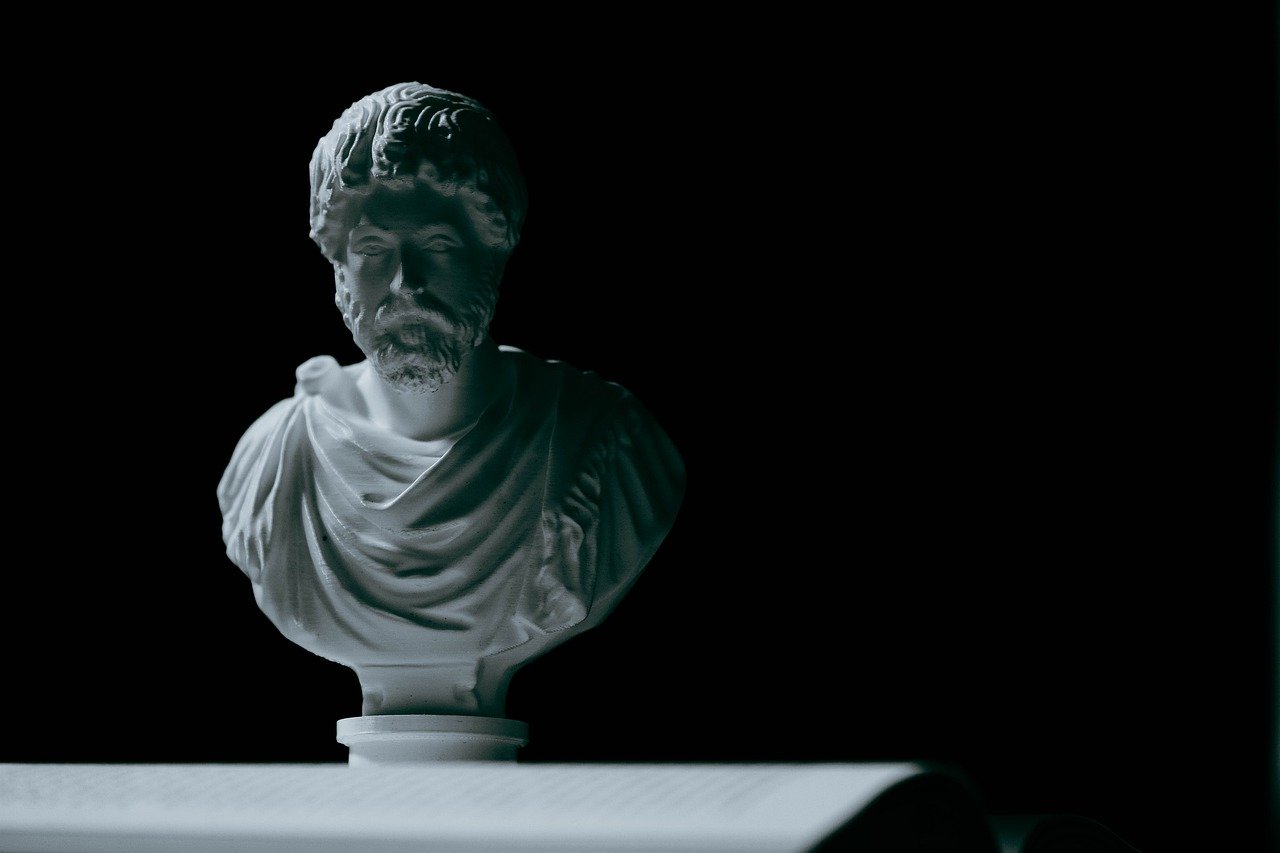
Philosophical Perspectives
When we delve into the philosophical interpretations of déjà vu, we find ourselves navigating a fascinating landscape that intertwines our understanding of reality, consciousness, and existence. Philosophers have long pondered the nature of our experiences, and déjà vu serves as a compelling case study. It’s not just a curious sensation; it’s a window into our perceptions of time and self. Imagine walking down a familiar street, only to feel an overwhelming sense of having been there before, even though you know you haven’t. This peculiar experience prompts us to ask: What does it mean to truly know a moment? Is it merely a trick of the mind, or does it hint at a deeper truth about our existence?
Existentialists, for instance, interpret déjà vu as more than just a fleeting moment of familiarity; they see it as a reflection of our ongoing search for meaning in life. In these instances, déjà vu can act as a catalyst for introspection, pushing us to confront profound questions about our existence. Are we simply going through the motions, or is there a greater purpose to our experiences? This perspective suggests that such moments can awaken us to the significance of our lives, urging us to seek out the extraordinary in the ordinary.
Moreover, the relationship between time and consciousness plays a pivotal role in our understanding of déjà vu. It challenges our conventional, linear perception of time. We often think of time as a straight line, with the past behind us and the future ahead. However, déjà vu blurs these boundaries, merging past experiences with the present moment. It raises intriguing questions: What if time is more cyclical or intertwined than we’ve been led to believe? This philosophical inquiry invites us to reconsider how we perceive our experiences and the nature of reality itself.
Identity is another crucial aspect intertwined with déjà vu. Our memories shape our sense of self, and the experience of déjà vu can prompt us to reflect on how these memories influence our current perceptions. When we feel that sense of familiarity, it can lead us to question: Who are we, and how do our past experiences define us? This intersection of memory and identity opens up a rich field of philosophical inquiry, suggesting that our understanding of reality is not just shaped by what we experience, but also by how we remember those experiences.
In the realm of phenomenology, the focus shifts to the subjective experience of déjà vu. Here, the emphasis is on how individuals perceive these moments of familiarity. Each person's interpretation of déjà vu is unique, influenced by their personal history, emotions, and context. This perspective highlights the richness of human experience, suggesting that while déjà vu may be a common phenomenon, the way we engage with it is profoundly personal. It invites us to consider how our individual perceptions contribute to a collective understanding of reality.
Ultimately, the philosophical perspectives on déjà vu encourage us to explore the complexities of our consciousness and existence. They challenge us to embrace the mystery of our experiences and to recognize that moments of familiarity may hold deeper meanings than we initially perceive. So, the next time you find yourself caught in a déjà vu moment, take a moment to reflect. What questions does it raise for you? How does it shape your understanding of time, identity, and reality?
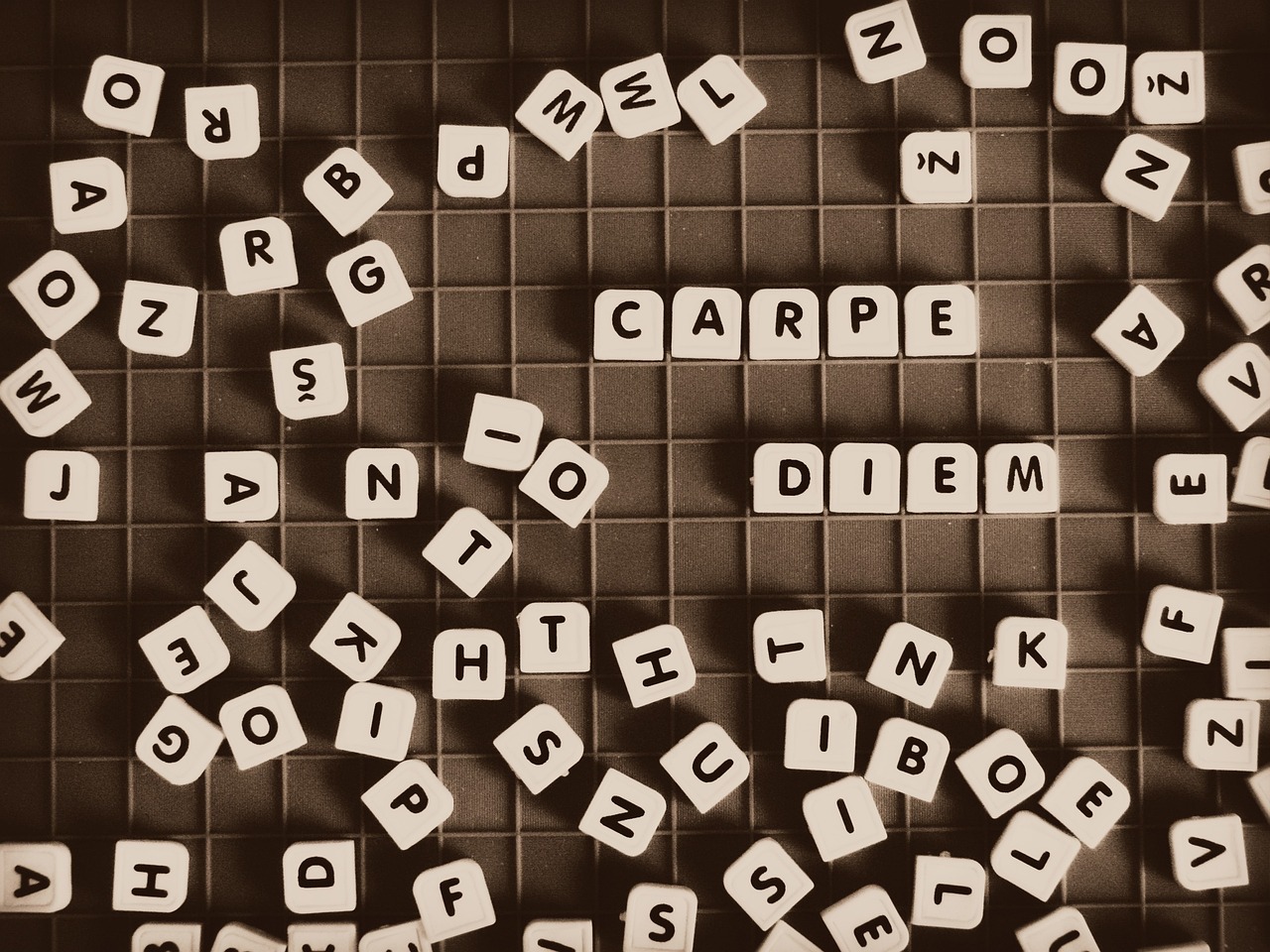
Existential Interpretations
When we dive into the realm of of déjà vu, we find ourselves grappling with profound questions about our existence and the very fabric of reality. Imagine standing in a crowded room, and suddenly, you feel a wave of familiarity wash over you, as if you’ve lived that moment before. This sensation can be both exhilarating and unsettling, prompting us to ponder: What does it mean to truly exist? Existentialists argue that these fleeting moments of déjà vu are not mere coincidences; rather, they are reflections of our ongoing quest for meaning in a world that often feels chaotic and unpredictable.
In this sense, déjà vu serves as a reminder of the transience of time and the fragility of our experiences. Just as an artist captures a moment on canvas, our consciousness attempts to seize and make sense of the present. Yet, when déjà vu strikes, it challenges our understanding of time itself. Are we reliving a moment, or is it merely an echo of our past? This paradox can lead to an existential crisis, where we question our place in the universe and the linearity of our experiences.
Moreover, existentialists believe that these moments can serve as catalysts for deeper introspection. They encourage us to ask ourselves essential questions, such as:
- What is the significance of my memories?
- How do my past experiences shape my identity?
- Am I truly present in my life, or am I merely going through the motions?
These inquiries can lead to a richer understanding of our identity and the narratives we construct about ourselves. Just as a book is shaped by its chapters, our lives are influenced by the memories we hold dear. Déjà vu, in its mysterious way, nudges us to reflect on these narratives and consider how they impact our current reality.
Furthermore, the existential interpretation of déjà vu highlights the interconnectedness of our experiences. It suggests that each moment, whether familiar or foreign, contributes to the tapestry of our lives. This perspective can be liberating, as it encourages us to embrace the ambiguity of existence. Instead of fearing the unknown, we can view it as an opportunity for growth and self-discovery.
In conclusion, the existential interpretations of déjà vu invite us to explore the depths of our consciousness and confront the complexities of our existence. By embracing these moments of familiarity, we can embark on a journey of self-exploration, ultimately leading to a richer and more meaningful life.

Time and Consciousness
When we delve into the relationship between time and consciousness, we find ourselves navigating a complex web of thoughts and feelings that challenge our conventional understanding of reality. Déjà vu, that peculiar sensation of having experienced a moment before, serves as a fascinating entry point into this discussion. It raises a series of profound questions: Is time truly linear? Do past and present intertwine in ways we cannot fully comprehend? These questions are not merely academic; they resonate deeply with our lived experiences.
To grasp the essence of déjà vu, we must first consider how our consciousness perceives time. Imagine time as a river, flowing steadily from the past, through the present, and into the future. Most of us navigate this river in a straightforward manner, moving from one moment to the next without much thought. However, déjà vu feels like a sudden whirlpool in that river, pulling us back to a moment we thought we had already passed. This sensation can be both disorienting and enlightening, prompting us to question the very fabric of our existence.
Philosophers have long debated the nature of time. Some argue that time is an illusion, a construct of our minds designed to help us make sense of our experiences. Others maintain that time is a tangible entity, one that governs our lives in a linear fashion. Déjà vu challenges these perspectives by suggesting that perhaps our consciousness is capable of transcending the confines of linear time. In moments of déjà vu, we may feel as if we are experiencing a snapshot of our lives, where the boundaries between past and present blur, leading us to ponder if we are merely observers in a pre-scripted play.
Furthermore, the interaction between memory and consciousness plays a crucial role in our understanding of déjà vu. Our memories are not static; they are fluid and malleable, shaped by our perceptions and experiences. When we experience déjà vu, it is as if our brain is momentarily misfiring, creating a false sense of familiarity. This misalignment between memory and present experience invites us to reflect on the reliability of our consciousness. Are we truly aware of our experiences, or are we simply constructing a narrative based on fragmented memories?
In exploring these questions, we can also consider the implications of déjà vu on our sense of self. If our consciousness can navigate time in such a fluid manner, what does that say about our identity? Are we the sum of our memories, or is there something deeper that defines us? These inquiries echo throughout philosophical literature, inviting us to ponder the very nature of existence. The experience of déjà vu can serve as a reminder that our understanding of time and consciousness is still evolving, much like a river that carves new paths through the landscape.
Ultimately, the relationship between time and consciousness is a rich field of inquiry that invites us to reflect on our experiences. Déjà vu is not just a fleeting moment; it is a profound reminder of the complexities of our consciousness and the mysteries of time. As we continue to explore these themes, we may uncover deeper truths about ourselves and the world around us.
- What is déjà vu? Déjà vu is the sensation that you have experienced a moment before, creating a sense of familiarity.
- Why does déjà vu happen? The exact cause is still debated, but it may involve memory misfiring or the brain processing familiar experiences in a unique way.
- Is déjà vu related to dreams? Some theories suggest that déjà vu may connect to dreams or subconscious memories, but research is ongoing.
- Can déjà vu be a sign of something more serious? While often harmless, frequent episodes of déjà vu can sometimes indicate neurological conditions. Consulting a professional is advisable if concerned.
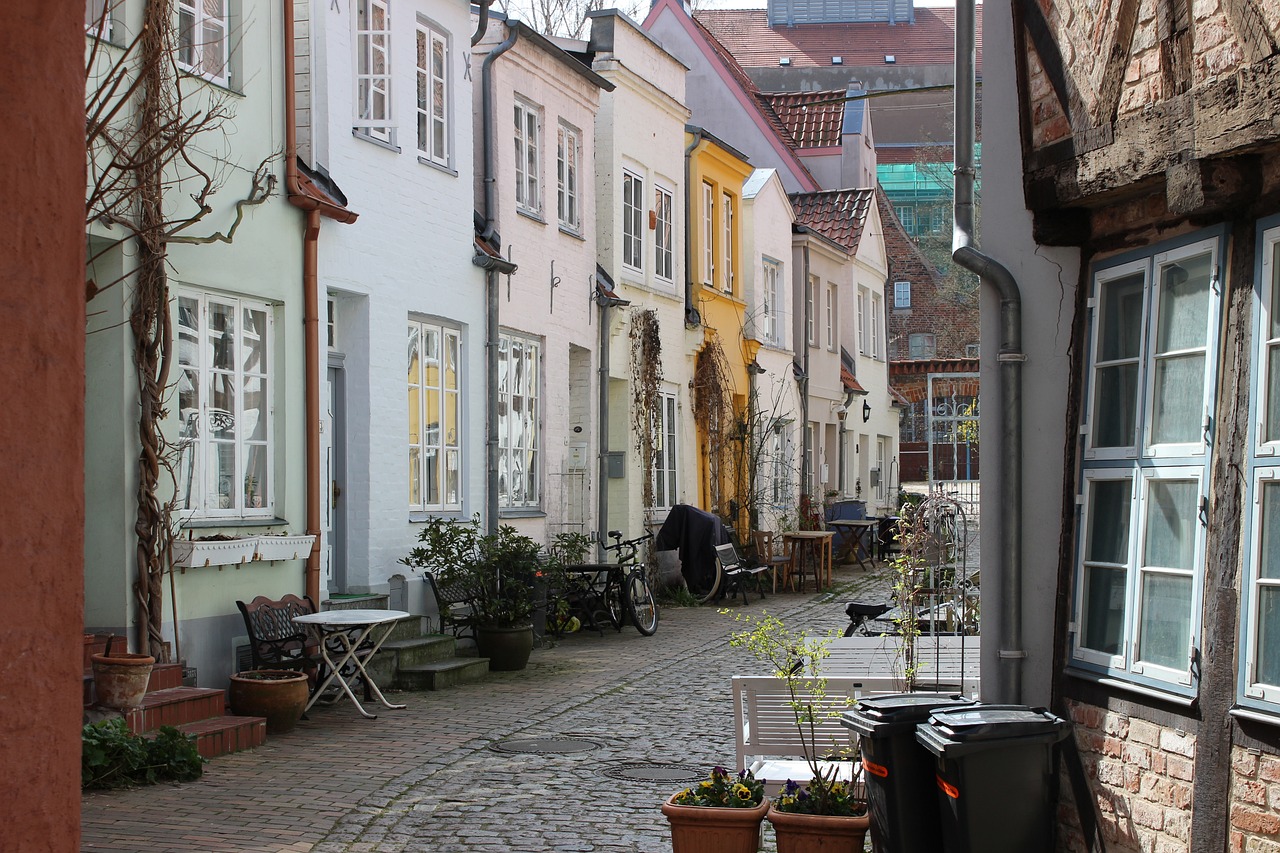
Identity and Memory
When we dive into the intricate relationship between identity and memory, déjà vu emerges as a fascinating phenomenon that invites us to reconsider how we perceive ourselves and our experiences. Imagine walking into a room and feeling an overwhelming sense of familiarity, as if you’ve been there before, even though you know you haven’t. This sensation can lead to profound questions about our sense of self and the nature of our memories. Are these fleeting moments simply glitches in our cognitive machinery, or do they hold deeper significance in shaping our identity?
Our memories play a pivotal role in constructing our identities. They serve as the building blocks of who we are, influencing our thoughts, behaviors, and interactions with the world. When déjà vu strikes, it can feel like a crack in the facade of our understanding of self. It prompts us to ask: What if our memories are not as reliable as we think? This uncertainty can be unsettling, making us question the authenticity of our experiences and how they contribute to our identity.
Philosophically, this intersection of déjà vu, identity, and memory raises several intriguing points:
- Memory as a Construct: Our memories are not perfect recordings; they are reconstructed every time we recall them. This reconstruction can lead to distortions that might explain why we experience déjà vu. If our memories are malleable, how does that impact our sense of self?
- The Role of Familiarity: Déjà vu often involves a sense of familiarity that is hard to pin down. This familiarity can influence our emotional responses and decision-making processes, further blurring the lines between past experiences and our current identity.
- Impact on Perception: The way we perceive time and our experiences can shift dramatically with moments of déjà vu. It challenges the linear timeline of our lives, suggesting a more cyclical or fragmented view of existence.
Ultimately, the experience of déjà vu serves as a reminder that our identities are not static; they are fluid and continually shaped by our memories and experiences. Just as a painter revisits their canvas, layering new colors and textures, our identities evolve with each moment we encounter. The next time you experience déjà vu, take a moment to reflect: What does this moment reveal about who I am?
- What is déjà vu? Déjà vu is the sensation that an experience currently being experienced has already been experienced in the past.
- Is déjà vu a sign of a medical condition? While it can sometimes be associated with certain neurological conditions, most instances of déjà vu are harmless and part of normal cognitive function.
- Can déjà vu be triggered by stress? Yes, heightened stress or fatigue can increase the likelihood of experiencing déjà vu.
- How does memory affect déjà vu? Déjà vu may occur when there is a mismatch between the brain's recognition of familiarity and the conscious experience of the situation.

Phenomenological Insights
When we dive into the realm of phenomenology, we uncover a fascinating layer of understanding about déjà vu that goes beyond mere neurological or cognitive explanations. Phenomenology, at its core, emphasizes the subjective experience of individuals. It invites us to explore how each person uniquely interprets those fleeting moments of familiarity. Have you ever had the sensation that you've lived through a moment before, as if the universe is playing a trick on your mind? This experience is not just a glitch; it's a profound inquiry into the nature of our consciousness and perception.
In phenomenological terms, déjà vu can be seen as a portal into our own consciousness. It prompts us to ask questions like: What does it mean to truly experience a moment? How do our memories intertwine with our present reality? To grasp this, we must consider how our past experiences shape our perceptions and how they can suddenly resurface, igniting a sense of recognition. For instance, imagine walking into a café you've never visited, yet feeling an overwhelming sense of familiarity. This sensation might lead you to believe that you’ve been there before, even if your logical mind knows you haven’t. Such moments challenge our understanding of time and existence.
Furthermore, the essence of déjà vu can be broken down into several components that highlight its phenomenological significance:
- Subjectivity: Each person's experience of déjà vu is inherently personal. What one person feels in that moment may differ vastly from someone else's interpretation.
- Contextual Clarity: The environment and circumstances surrounding the déjà vu experience can add layers of meaning. For example, if you experience déjà vu while visiting a childhood home, it might evoke nostalgia and deeper reflections on your past.
- Temporal Fluidity: Déjà vu challenges our linear perception of time, suggesting that our experiences may not be as straightforward as we believe. It poses the question: Are past, present, and future more intertwined than we realize?
Interestingly, phenomenology encourages us to embrace these moments of déjà vu as opportunities for self-reflection. Instead of dismissing them as mere anomalies, we can view them as invitations to explore our consciousness. They can spark curiosity about our identity, our memories, and how they shape our realities. In essence, déjà vu serves as a reminder that our experiences are not isolated incidents but part of a larger tapestry of existence.
In conclusion, phenomenological insights into déjà vu reveal that this perplexing experience is not just a fleeting moment of confusion; it is a rich field for exploration. By examining our subjective experiences, we can gain a deeper understanding of ourselves and our relationship with time and memory.
- What is déjà vu? Déjà vu is the sensation that an event or experience currently being experienced has already been experienced in the past.
- Is déjà vu a psychological or neurological phenomenon? It can be both; while psychological interpretations focus on memory and perception, neurological theories suggest brain activity plays a role.
- Can déjà vu be triggered by stress or fatigue? Yes, some studies suggest that high stress or fatigue can increase the likelihood of experiencing déjà vu.
- Is there a way to prevent déjà vu? There’s no known method to prevent déjà vu, but understanding it may help individuals cope with the experience.
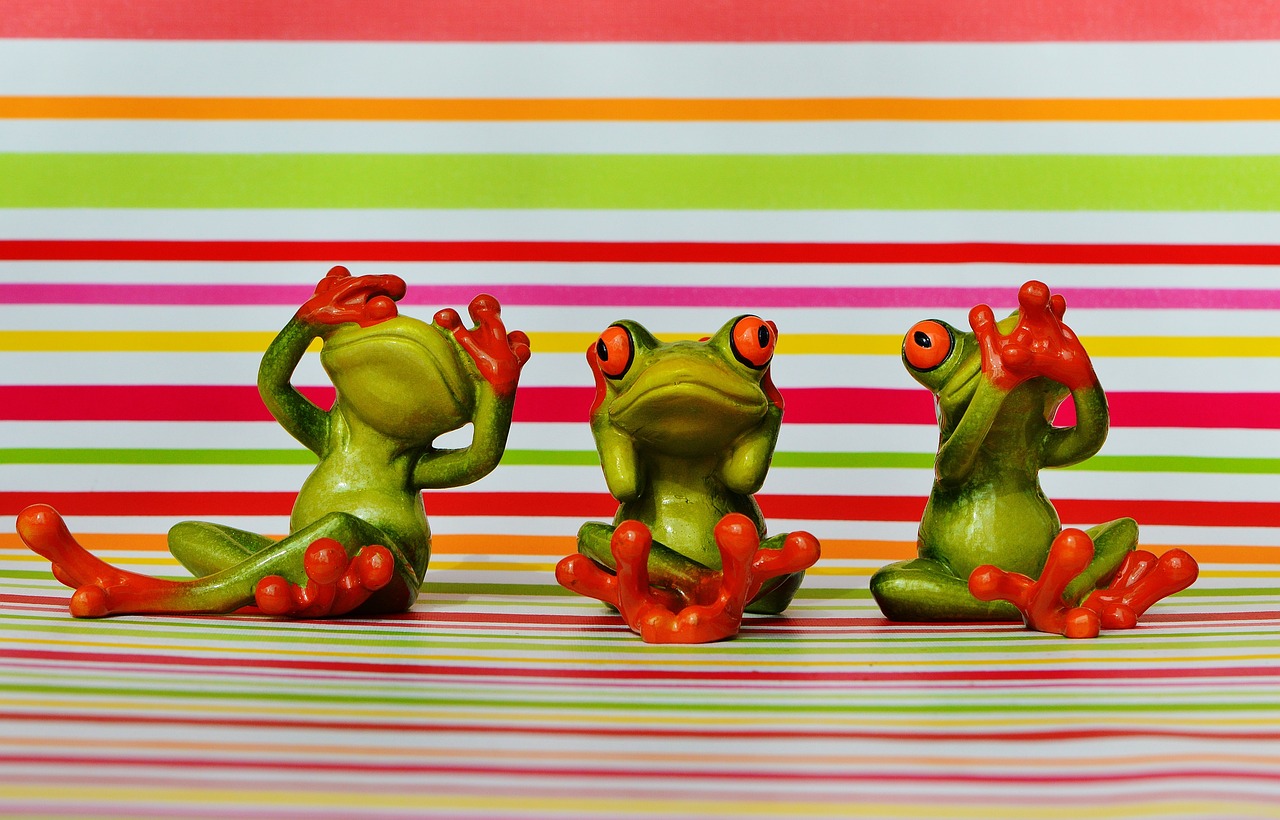
Scientific Explanations
When it comes to understanding the enigma of déjà vu, scientific research plays a pivotal role in unraveling its complexities. While philosophical interpretations provide a rich tapestry of ideas about consciousness and reality, the scientific community approaches déjà vu through the lens of neurology and cognitive psychology. These fields offer insights into how our brain processes experiences, and they delve into the mechanisms that might trigger this peculiar sensation of familiarity.
One of the leading theories in the neurological domain suggests that déjà vu could stem from misfiring neurons or unusual activity in the temporal lobe of the brain. The temporal lobe is crucial for processing sensory input and is deeply involved in memory formation. When neurons misfire, they can create a false sense of familiarity, making us feel as though we've experienced a moment before, even when we haven't. This phenomenon can be likened to a glitch in the matrix—a momentary hiccup in our brain's processing that leads to a sense of déjà vu.
Moreover, researchers have explored how our brain's memory systems might contribute to this experience. Cognitive psychology examines the intricate ways in which memory and recognition work. For instance, when we encounter a situation that feels familiar, it might be because our brain is simultaneously processing both familiar and unfamiliar elements. This creates a cognitive dissonance that can lead to the sensation of having lived that moment before. In essence, it’s as if our brain is playing a trick on us, merging different experiences into one, which can be incredibly disorienting.
To better illustrate the scientific theories surrounding déjà vu, let's take a look at the following table that summarizes key neurological and cognitive perspectives:
| Theory | Description |
|---|---|
| Neurological Misfiring | Involves the temporal lobe and misfiring neurons that create false memories. |
| Cognitive Overlap | Simultaneous processing of familiar and unfamiliar elements leads to a sense of familiarity. |
| Memory Recall Error | Inaccurate retrieval of memories that creates an illusion of prior experience. |
As we continue to explore the scientific underpinnings of déjà vu, it becomes evident that this phenomenon is not merely a curious quirk of the mind; it’s a window into the intricate workings of our consciousness. The interplay between memory, perception, and the brain's neurological pathways raises profound questions about how we experience reality. Are we truly living in the moment, or are our brains constantly playing catch-up, weaving together threads of past experiences into the fabric of our current reality?
In conclusion, while the philosophical interpretations of déjà vu offer a deeper understanding of our existence and perception, the scientific explanations provide a robust framework that helps demystify this fascinating phenomenon. By bridging these perspectives, we can gain a more holistic view of what déjà vu signifies in the grand tapestry of human experience.
- What is déjà vu? Déjà vu is the sensation that an event or experience currently being experienced has already been experienced in the past.
- Is déjà vu a sign of a serious condition? In most cases, déjà vu is a normal phenomenon; however, frequent occurrences can be associated with certain neurological conditions.
- Can déjà vu be induced? Some people report experiencing déjà vu during high-stress situations or after consuming certain substances, but it typically occurs spontaneously.
- Are there ways to prevent déjà vu? There is no known way to prevent déjà vu, as it is a natural occurrence in many individuals.
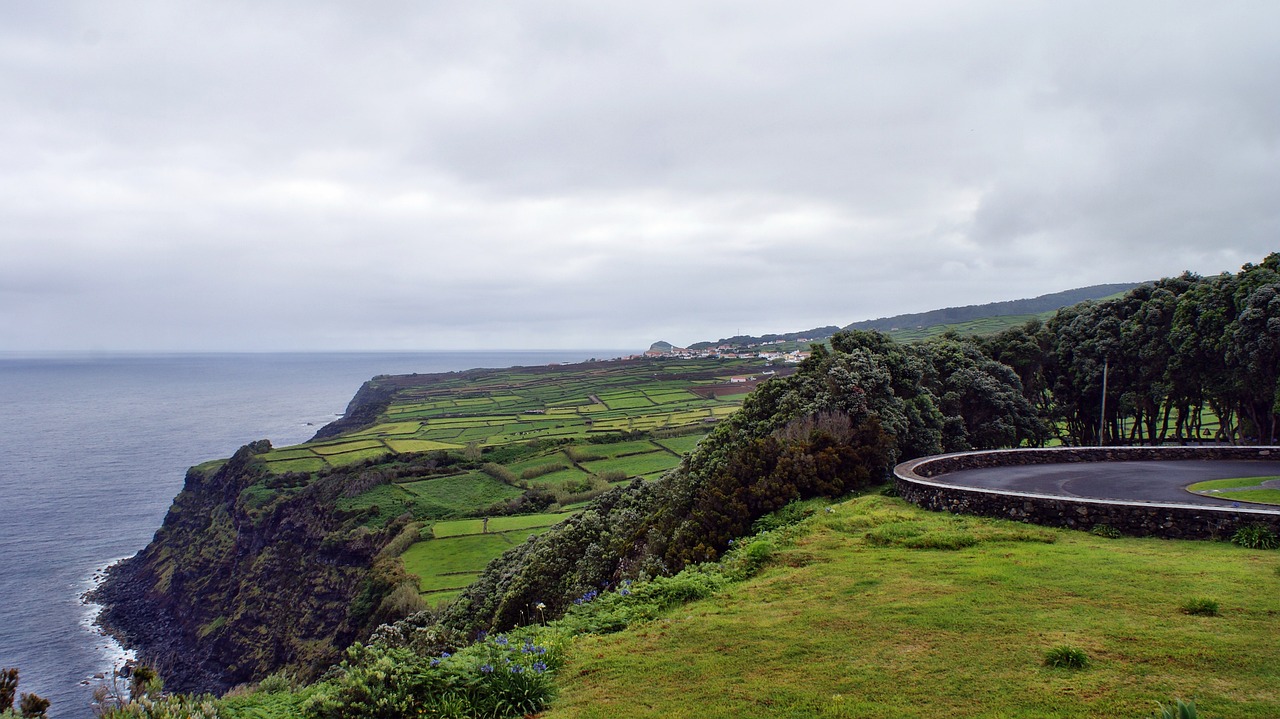
Neurological Theories
When we dive into the realm of surrounding déjà vu, we're essentially peering into the intricate workings of the human brain. This phenomenon, which many of us have experienced at least once, raises fascinating questions about how our minds process memories and sensations. One of the leading hypotheses is that déjà vu may stem from a misfiring of neurons within the brain, particularly in the temporal lobe. This area is crucial for memory formation and retrieval, and when it experiences a glitch, it might create the illusion that we've experienced a moment before, even if we haven't. Imagine your brain as a well-tuned orchestra; when one musician plays off-key, the entire symphony can sound different, leaving you feeling disoriented yet intrigued.
Another angle to consider is the role of familiarity in our cognitive processes. Research suggests that déjà vu could occur when our brain encounters a situation that closely resembles a past experience, even if we don't consciously recognize it. This can be likened to a déjà vu moment where you walk into a café that feels oddly familiar yet you can't quite place why. Your brain is essentially making connections that your conscious mind hasn't fully grasped yet. It’s as if your mind is playing a game of hide and seek with your memories, teasing you with just a glimpse of recognition.
To further illustrate these theories, let's consider a
| Neurological Factors | Description |
|---|---|
| Misfiring Neurons | Unexpected firing of neurons in the temporal lobe leading to the sensation of familiarity. |
| Temporal Lobe Activity | Increased activity in the temporal lobe can trigger déjà vu experiences, suggesting a biological basis for the phenomenon. |
| Memory Processing | Interactions between short-term and long-term memory systems that may result in feelings of familiarity. |
Moreover, the cognitive perspective sheds light on how our brains process both familiar and unfamiliar experiences simultaneously. This dual processing can create a cognitive dissonance, where we feel a sense of recognition without a clear memory attached to it. This is akin to trying to remember a dream after waking up; you know it was significant, but the details slip through your fingers like sand. The brain’s ability to recognize patterns and make connections is a powerful tool, yet it can sometimes lead us astray, resulting in these fleeting moments of déjà vu.
In summary, the neurological theories surrounding déjà vu offer a compelling glimpse into the complexities of the human brain. By examining how neurons fire, how memories are processed, and how familiarity is recognized, we can begin to unravel the mystery behind this captivating phenomenon. It's a reminder of just how intricate and fascinating our minds are, constantly working to make sense of our experiences, even when they sometimes play tricks on us.
- What is déjà vu? Déjà vu is the sensation that a current experience has been experienced before, creating a feeling of familiarity.
- What causes déjà vu? While the exact cause is still debated, neurological and cognitive theories suggest it may be linked to memory processing and brain activity.
- Is déjà vu a sign of a medical condition? In most cases, déjà vu is a normal phenomenon; however, frequent occurrences can sometimes indicate neurological issues.
- Can déjà vu be experienced by everyone? Yes, most people experience déjà vu at some point in their lives, but the frequency and intensity can vary.
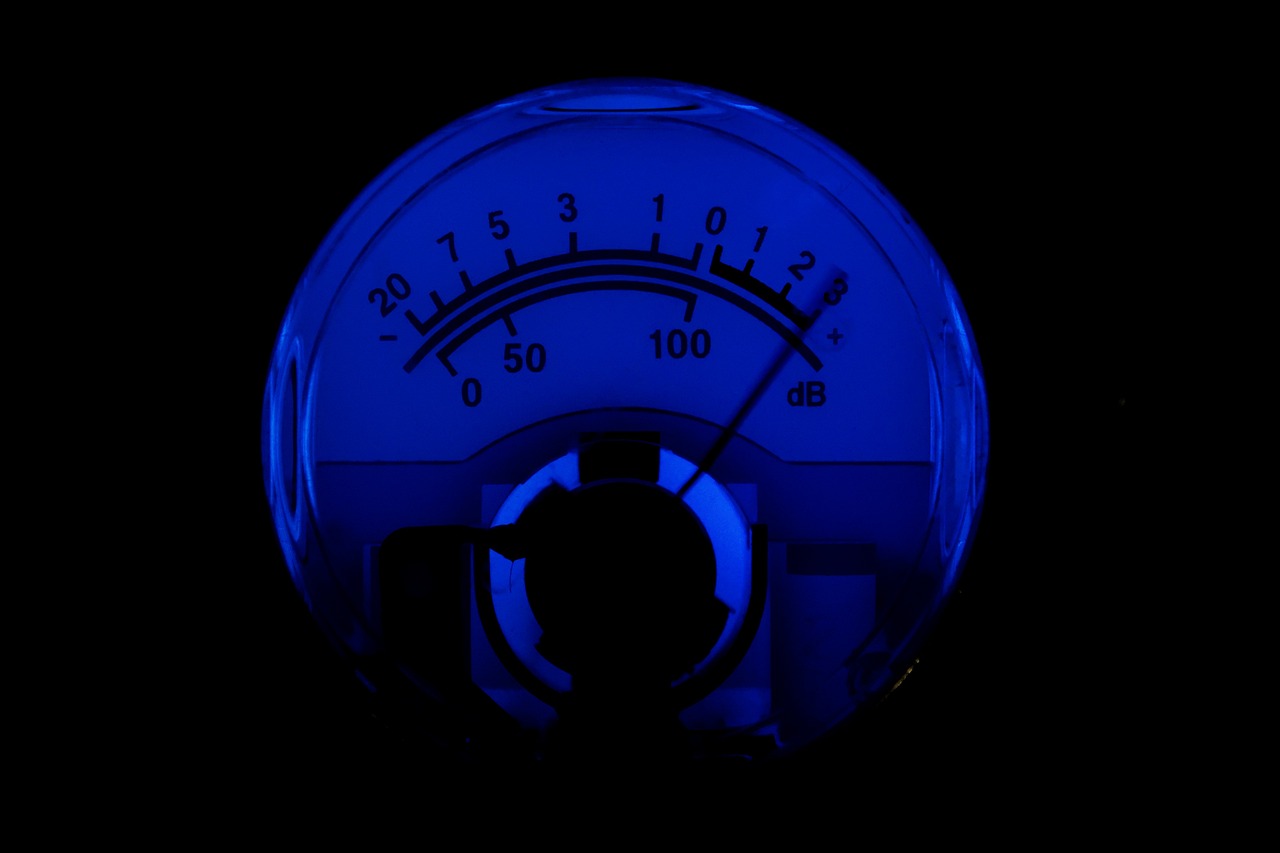
Cognitive Perspectives
When we delve into the cognitive perspectives surrounding déjà vu, we enter a fascinating realm where memory, recognition, and perception intertwine. Imagine walking into a room and suddenly feeling as if you’ve been there before, even though you know you haven’t. This uncanny sensation can be attributed to how our brains process information. Essentially, déjà vu occurs when there’s a mix-up in the brain's memory systems, leading us to mistakenly believe we are reliving a moment rather than experiencing it for the first time.
One of the key concepts in cognitive psychology that helps explain déjà vu is the idea of memory recognition. Our brain constantly sifts through a vast array of experiences, categorizing them as familiar or unfamiliar. When a new experience closely resembles a past one, it can trigger a false sense of familiarity. This cognitive misfire can happen due to several reasons, including:
- Attention lapses: If our attention is divided, we may not fully register an experience, leading to a sense of familiarity when we encounter it again.
- Contextual similarities: Sometimes, the environment or situation may remind us of a previous experience, even if the specifics are different.
- Memory overlap: The brain might inadvertently merge two separate memories, creating a sense of déjà vu when we encounter a related situation.
Furthermore, researchers have found that the brain regions involved in memory processing, particularly the hippocampus and the temporal lobe, play crucial roles in how we experience déjà vu. When these areas experience heightened activity or misfiring, it can lead to the sensation of familiarity without a clear recollection of the original memory. This neurological basis provides a compelling explanation for why some individuals might experience déjà vu more frequently than others, as variations in brain structure and function can influence memory processing.
Interestingly, cognitive theories also suggest that déjà vu can be linked to the brain's ability to predict future events based on past experiences. When we encounter a situation that closely aligns with a previous memory, our brain may mistakenly signal that we have already lived through that moment. This predictive nature of our cognition underscores the complexity of human memory and perception, revealing just how intricate our mental processes are.
In summary, cognitive perspectives on déjà vu highlight the remarkable interplay between memory, recognition, and our subjective experience of reality. By understanding these mechanisms, we can appreciate how our brains navigate the labyrinth of past and present, occasionally leading us to those bewildering moments of déjà vu that leave us questioning our own experiences.
- What causes déjà vu? Déjà vu is thought to be caused by a mix-up in the brain's memory systems, leading to a false sense of familiarity.
- Is déjà vu a sign of something serious? Generally, déjà vu is not a cause for concern; however, frequent occurrences may warrant a discussion with a healthcare professional.
- Can everyone experience déjà vu? Yes, most people experience déjà vu at some point in their lives, although the frequency and intensity can vary.
Frequently Asked Questions
- What is déjà vu?
Déjà vu is that strange feeling when you think you've experienced something before, even if you know you haven’t. It's like your brain is playing tricks on you, creating a moment of eerie familiarity that leaves you scratching your head.
- Is there a scientific explanation for déjà vu?
Yes! Scientists suggest that déjà vu might be caused by a glitch in our memory processing. It could be linked to misfiring neurons in the brain or how we recognize familiar situations. Essentially, our brain might be mixing up the present with a past experience, leading to that uncanny sensation.
- Can déjà vu be linked to any psychological conditions?
Interestingly, frequent episodes of déjà vu can sometimes be associated with certain neurological conditions, such as temporal lobe epilepsy. However, for most people, it's a harmless experience that happens occasionally without any underlying issues.
- What do philosophers say about déjà vu?
Philosophers have a lot to say! They explore how déjà vu relates to our understanding of time, consciousness, and identity. Some argue that these moments challenge our perception of reality and prompt us to question our existence and the nature of our experiences.
- Does déjà vu have any cultural significance?
Absolutely! Different cultures interpret déjà vu in various ways. Some see it as a spiritual sign or a glimpse into a past life, while others view it purely as a psychological phenomenon. It's fascinating how our experiences can be colored by cultural beliefs!
- Is there a way to trigger déjà vu?
While there's no guaranteed method to induce déjà vu, some people report that engaging in novel experiences or visiting new places can increase the likelihood of feeling that sense of familiarity. It's like your brain is more attuned to recognize patterns in new settings!
- Can déjà vu happen more than once in a day?
Yes, it can! Some people may experience déjà vu multiple times in a day, especially if they’re in similar environments or situations. It’s a quirky aspect of how our memory and perception work, and it can leave us feeling a bit bewildered.


